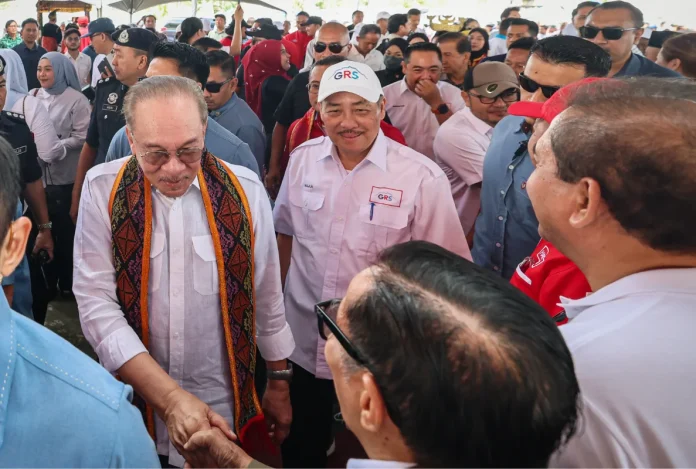Sabah mineral scandal shakes state polls as analysts warn PH and GRS could face voter backlash, while BN and Warisan eye potential gains in key constituencies.
PETALING JAYA: Explosive claims by businessman Albert Tei over the alleged Sabah mineral scandal have injected fresh volatility into the Sabah polls, with analysts warning the allegations could sharply alter voter sentiment, particularly for PH and GRS.
Universiti Malaya political analyst Datuk Prof Dr Awang Azman Awang Pawi said the fallout is far from uniform, noting that its impact differs markedly across regions and voter groups in Sabah.
He stressed that although the controversy has become a national talking point, its effects on the ground are “targeted, selective and highly dependent on local sentiments”.
According to him, PH is poised to bear the biggest blow – both in national public perception and in its already limited electoral standing in Sabah.
“PH is not a dominant force in Sabah. Their strength is concentrated in urban constituencies such as Kota Kinabalu, Putatan and Penampang.
“Because PH relies heavily on urban, reform-minded, anti-corruption voters, the scandal creates a strategic vulnerability,” he told theSun via WhatsApp.
Awang Azman said the situation has been intensified by the narrative-building efforts of rival coalitions ahead of polling for the 73 seats tomorrow.
“Warisan and Perikatan Nasional (PN) can weaponise the issue effectively by linking it to the federal leadership and by emphasising the perceived integrity gap.”
He added that PH’s real risk lies in the potential erosion of support among urban anti-corruption voters who have historically aligned with the coalition’s reform agenda but may now reconsider if the mineral scandal becomes a sustained campaign theme.
“Should Warisan amplify the issue strategically, PH may face a measurable outflow of votes in urban centres.”
In contrast, BN – particularly Sabah Umno – is expected to remain largely untouched by the controversy despite its federal cooperation with PH, Awang Azman said.
He said BN’s insulation stems from the fact that no Sabah BN leader is directly implicated.
“This positions BN as an outside observer to what many voters may perceive as an internal conflict within PH or an issue tied to GRS leadership.”
He added that BN’s campaign remains anchored in “bread-and-butter issues that resonate strongly with rural and semi-urban voters”, from water supply and electricity reliability to poor road conditions and the soaring cost of living.
These concerns, he said, outweigh high-level political scandals for BN’s core base.
Thus, the scandal’s net effect on BN is expected to be “neutral”, with its performance likely determined instead by “candidate selection, local networks and the strength of village-level machinery”.
While PH grapples with reputation damage, Awang Azman believes GRS faces the most direct electoral threat, given that the controversy originated from individuals linked to the coalition.
“GRS is contesting a large number of seats in the Sabah election and the mineral issue could undermine its credibility in competitive constituencies.”
He said the fallout has opened new opportunities for BN and Warisan, particularly in seats defined by narrow margins or multi-cornered contests.
“If opposition blocs manage to “mobilise and sensationalise the issue to maximum effect”, he said, they could turn public dissatisfaction into tangible gains.
“In highly competitive districts, this scandal may be the advantage BN and Warisan need to tilt voter sentiment and increase their seat count.”
Tei’s recent allegation claimed that Prime Minister Datuk Seri Anwar Ibrahim, his former senior political secretary Datuk Seri Shamsul Iskandar Md Akin and Malaysian Anti-Corruption Commission chief commissioner Tan Sri Azam Baki were linked to matters surrounding the alleged Sabah mineral scandal.
On Tuesday, Shamsul Iskandar resigned from his government post and lodged a police report against Tei, denying the allegations and asserting that both he and Anwar were falsely implicated.








